Grassroots PD: School Librarians Create Their Own Professional Development
Here’s how school librarians are finding innovative ways to bring peers together, share resources, and create community, one PD session at a time.
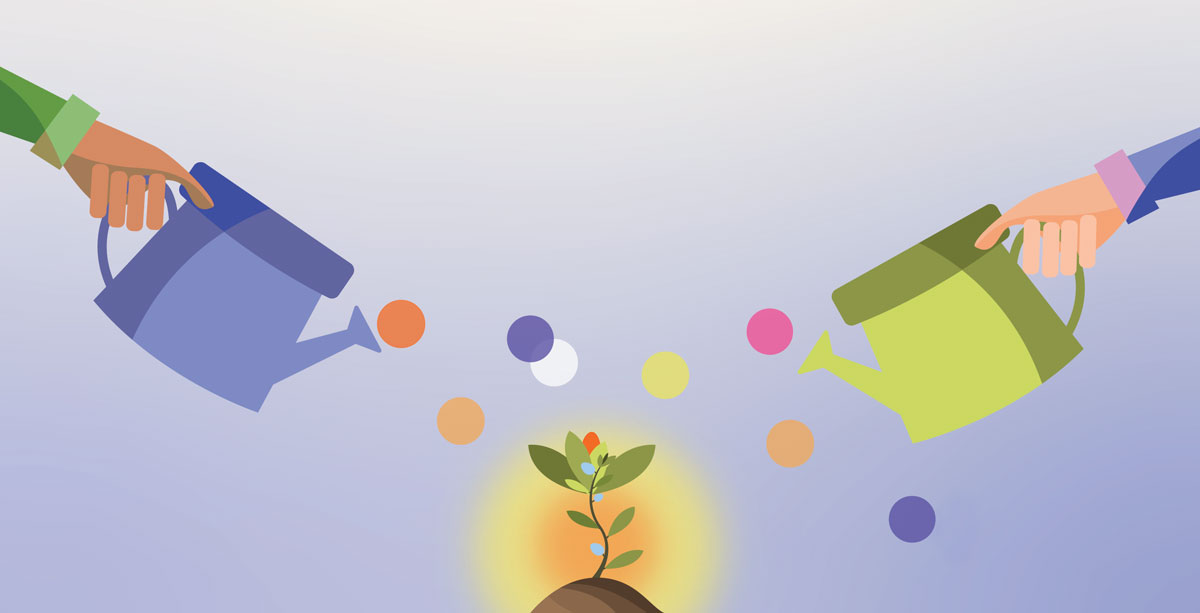 |
GlebMartirosov Getty Images (SLJ modified) |
Related reading: |
Christine Wright is the school librarian at Sunset Elementary School in Bellevue, WA, a role she’s held for four years, following 14 in the classroom. Board certified in library and school media, Wright still considers herself a newcomer to the field and is always seeking opportunities to learn and grow.
But those professional development opportunities aren’t so easy to come by.
In schools and districts, most PD is geared toward classroom teachers, not school librarians. And conferences that are designed for librarians can have their own hurdles.
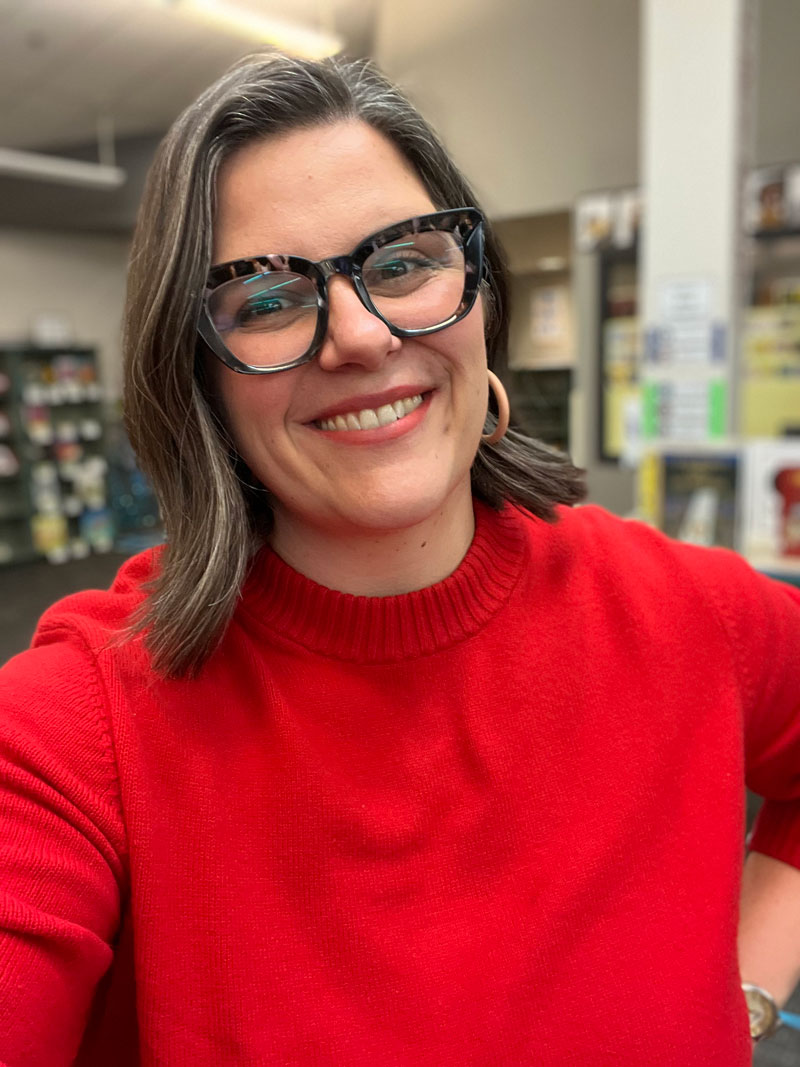 |
Christine Wright |
“I think many folks experience barriers,” Wright says. For example, she’s never attended an American Library Association (ALA) conference. “Just the cost of membership is prohibitive to some of us on a teacher’s salary,” she says.
Even if school librarians can overcome the challenges of travel cost and attendance, it can still be difficult to take the time to travel to events. “It’s always a time and money game,” Wright says.
While Wright has found her district-led PD to be “fruitful,” she and other librarians around the country want more PD than what their district may be able to offer.
Melissa Jacobs, director of library services for New York City Public Schools, says that, along with the closure of many school libraries, she has seen a trend of states and districts eliminating leadership positions that might otherwise provide librarians PD.
[Also read: "Facing Book Bans, Libraries Need to Skill Up. Enter READCON."]
“Outside of New York State, I’ve seen a lot of school districts cut back on the person in charge of school libraries, and I’ve also seen that person who is supporting the library being merged with other supports,” Jacobs says. “And so where does the library fall in that realm? Does that individual have enough resources and knowledge to provide PD to librarians?”
Often, the answer is no. And when you’re the only school librarian in your school or district, it can feel next to impossible to find opportunities for professional growth, let alone opportunities to collaborate with colleagues.
“I think the one-and-done, swoop-in-from-the-districts instructional coaches haven’t been trained in the library sciences and what we do, and so they aren’t well equipped to provide PD for us,” says educator and school librarian Nikki D. Robertson-Griffin. “So it really does fall back on librarians grass-rooting and helping each other out.”
Here’s how some school librarians are finding innovative ways to bring peers together, share resources, and create community, one PD session at a time.
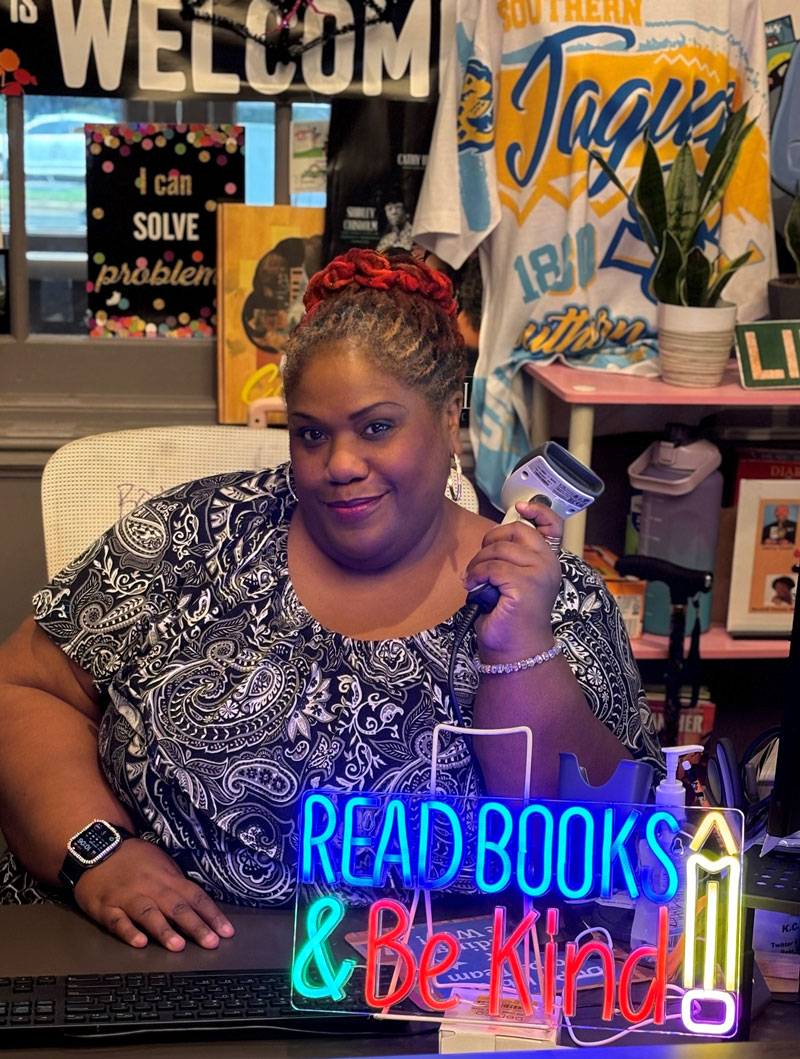 |
K.C. Boyd |
PD like a #Boss
K.C. Boyd meets a lot of librarians. But after being named the 2022 School Librarian of the Year, she met even more. Boyd, a library media specialist with DC Public Schools, says she kept hearing the same thing—school librarians weren’t getting the PD they needed.
Many didn’t have PD available to them in their district. Others were getting lumped in with the tech department or English teachers at their schools during PD events, discussing issues that had little to do with the library.
“I’ve always worked in a district that has PD, and I don’t know what it would be like” not to have it, Boyd says. “I started thinking about it, and it was nothing for me to get my friends together and do something, because I have friends who have the same attitude, that we want to help other librarians develop and get better.”
With that mindset, Boyd launched Boss Librarian and Friends virtual PD. The event has run for the past three summers, and this year Boyd welcomed more than 1,600 school librarians for four days of free information.
Participants heard from a host of celebrated and award-winning school librarians—including fellow School Librarians of the Year Cicely Lewis and Amanda Chacon, and Andrea Jamison, assistant professor of librarianship at Illinois State University, to name a few. Participants spoke on a range of topics, from the impact of censorship on marginalized communities to the advent of artificial intelligence (AI).
Detroit-area school librarian Amy Hermon was at this year’s event as both an attendee and a presenter. She says it was an incredibly beneficial event to take part in.
“The wonderful thing is that [Boyd] runs this virtual PD and she’s been able to bring school librarians from all over the country,” Hermon says. “She also gives us flexibility to present on what we want to present on, and what we’re proud of. Oftentimes if you go to a conference, your proposal is going to be scrutinized and scored and, all too often, what happens, especially with ALA, is you get rejected.”
While sessions are carefully vetted for Boss PD, it has created a space where a variety of topics are embraced.
Boyd also makes sure that librarians are coming away with resources they can use. In addition to receiving a certificate of professional development to bring back to their administrators for credit, librarians have access to recordings of all the sessions and links to all the presenter resources.
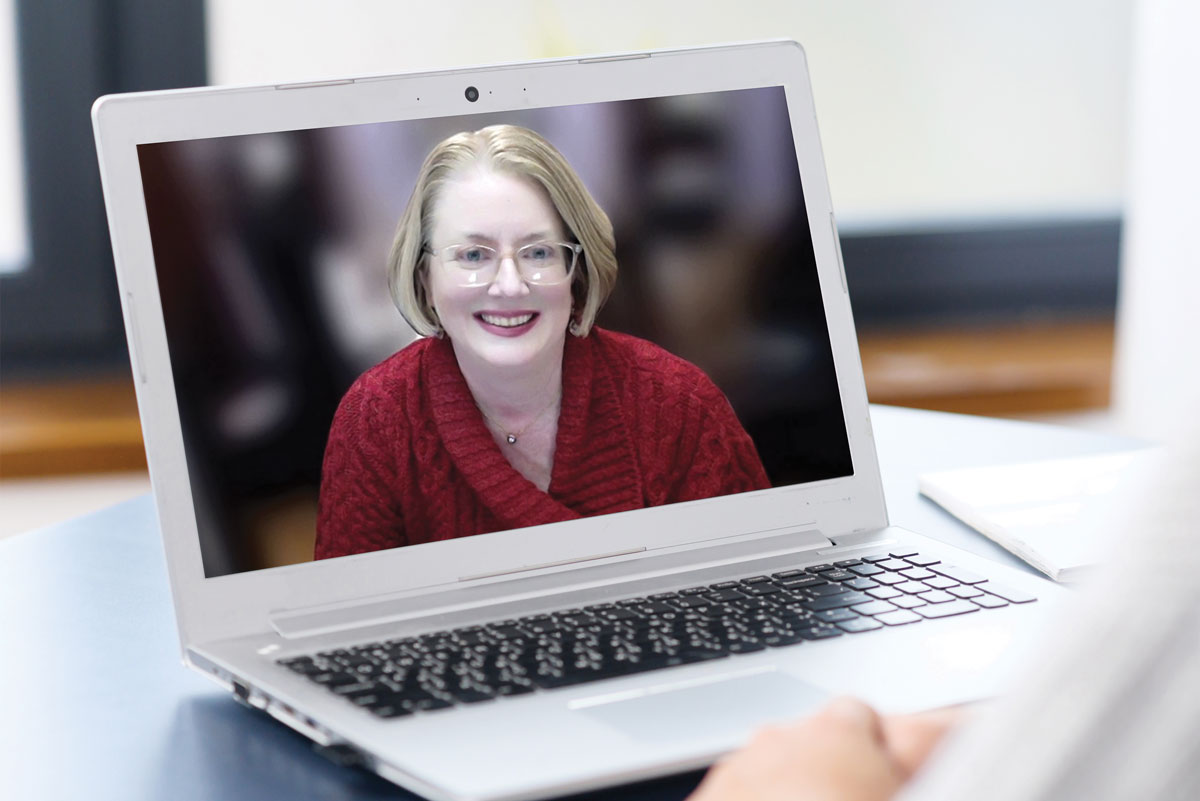 |
Elissa Malespina |
Bringing AI to the library
New Jersey school librarian Elissa Malespina has been a school librarian for over 20 years, and she has always been passionate about providing PD for other educators. But last year, after participating in a PD event on AI, she was inspired to share more about the burgeoning tech and its role in the library.
This summer, Malespina hosted her own conference, School Librarians and AI, on Library 2.0, which hosts free online events for the library community.
Panelists discussed topics related to how AI can be ethically used for student research to AI-powered homework help and using chatbots for students to interact with historical figures.
Malespina says that there are clear pros and cons of AI. She hoped the conference could be a launchpad for discussion.
“How do we as librarians talk to our students, and to others, about this technology and confront some of these issues?” she asks. “I believe we can’t just not teach it, but we have to teach students how to use it ethically and appropriately, and to talk about some of the issues with AI.”
Her initiative also aimed to provide school librarians with concrete ways to use AI back in their districts. Robertson-Griffin shared with librarians how they could use AI to make creative, engaging social media and Canvas posts.
“If you don’t promote yourself on social media, no one knows what’s going on in the library,” Robertson-Griffin says. “But writing those posts takes a lot of time. So, I showed how to feed a prompt using ChatGPT or Gemini.”
The event garnered more than 3,000 attendees, and more have likely watched the recorded sessions since the live event. “Just this week I got an email from someone who watched the recording, thought it was amazing, and asked if I had another presentation I had mentioned that I could share with them,” Robertson-Griffin says.
Malespina says she plans to offer the event again, with the focus continuing on AI, a topic she says is “so expansive, and every day there’s a new tool and new discussion around it.”
 |
Amy Hermon |
New PD formats
Since the pandemic, the education field has discovered the pros of virtual PD. Librarians have gotten creative in curating “mini-PD” or other opportunities to inspire and collaborate.
For instance, Boyd has long run a weekly Clubhouse chat for school librarians to build community and create a virtual space to support one another.
“The reason we started doing it was, let’s get together and meet and talk so we can get ourselves hyped up for the upcoming week,” Boyd says. “It could be viewed as a mini-PD, and I think it’s good for social-emotional levels, getting in touch with people.”
Hermon turned to the Clubhouse for a chance to speak with other librarians. That inspired Hermon to launch her own space for collaboration when she started the podcast “School Librarians United,” which began in 2018.
“It came out of a realization that there was a lack of places for deep dives between peers,” Hermon says. “Forget PD. Just conversations. Whereas traditional classroom teachers can look left and right and find people who have taught that grade level or class, when we look around, there’s no one else. I’m the only librarian in my district. I created the podcast to make those conversations available for others.”
Another burgeoning space for conversation and sharing resources has been Substack. Malespina publishes The AI School Librarians Newsletter through Substack. Within each article, Malespina focuses on one AI tool and provides a lesson plan. She also discusses ethical components and shares a reading list of articles she’s found interesting throughout the week. If there’s a useful PD opportunity coming up for school librarians, she makes sure to include that, too.
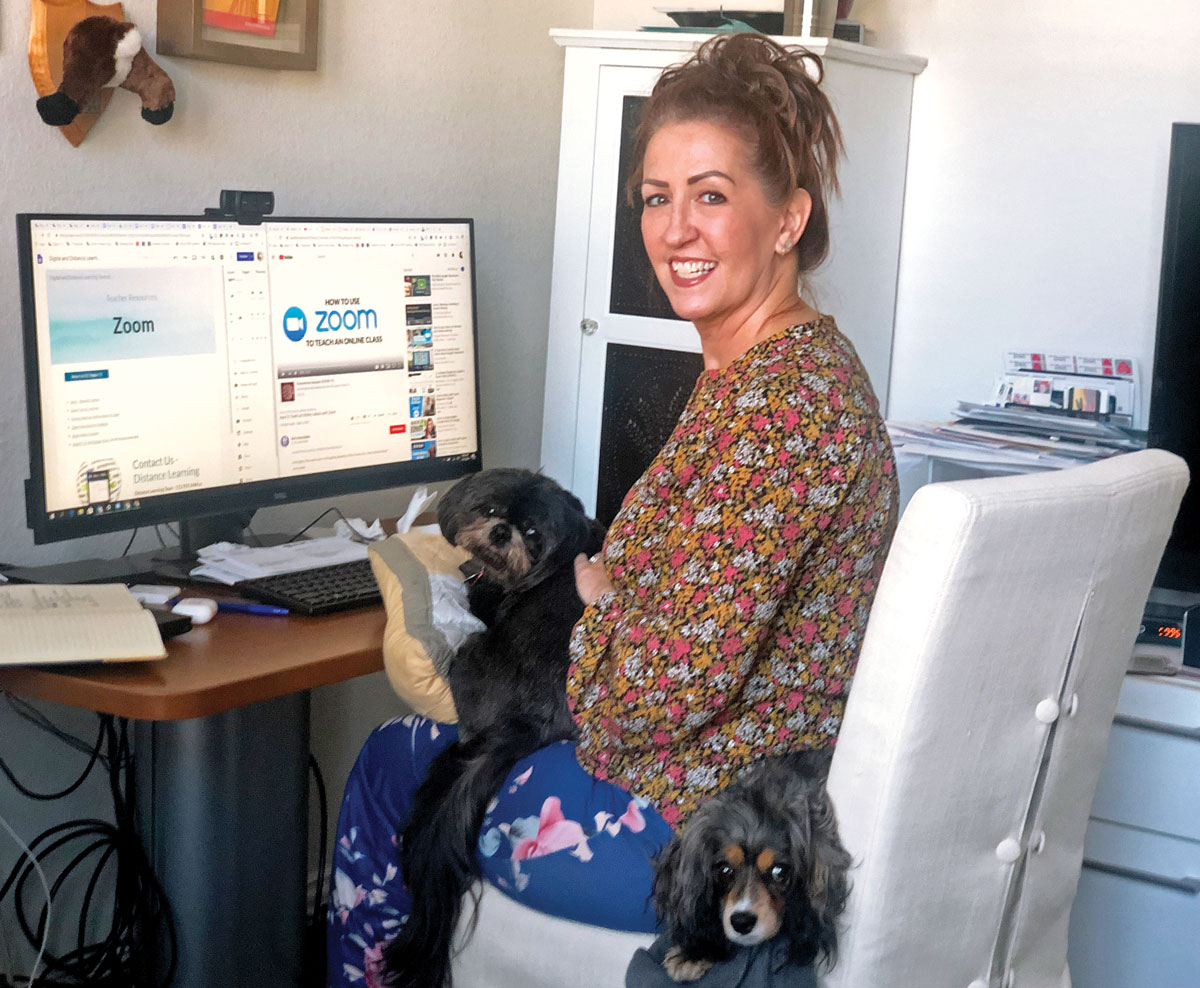 |
Nikki D. Robertson-Griffin |
Substack is “another form of PD that more and more people are going toward,” Malespina says.
Robertson-Griffin agrees. Since school librarians often get the short end of the stick when it comes to budgeting for PD in schools, she says that virtual conferences as well as resources through social media are important.
“Social media is one way to get quick answers, to make connections, to learn about different things that might work in your library,” Robertson-Griffin says.
For some school librarians, there’s another benefit: safety. Wright sees venues like a Substack or podcasts as not only innovative, but also as providing shelter from the abuse many school librarians face through their work.
“With the extremist political activity of the moment, going behind a paywall on a Substack or a subscription to a podcast feels buffered to the winds of that, and a slight barrier to people who are targeting” librarians, Wright says. “Those of us with negative experiences with book banning in our area are hesitant to put the full breadth of our thought out publicly. But inviting people into a smaller community behind a paywall feels like a more protective place to have nuanced conversations.”
Portraits courtesy of the individuals depicted. Laptop image: Vadym Pastukh/Getty Images.
Andrew Bauld is a freelance education journalist.
RELATED
The job outlook in 2030: Librarians will be in demand
The job outlook in 2030: Librarians will be in demand
ALREADY A SUBSCRIBER? LOG IN
We are currently offering this content for free. Sign up now to activate your personal profile, where you can save articles for future viewing






Add Comment :-
Be the first reader to comment.
Comment Policy:
Comment should not be empty !!!